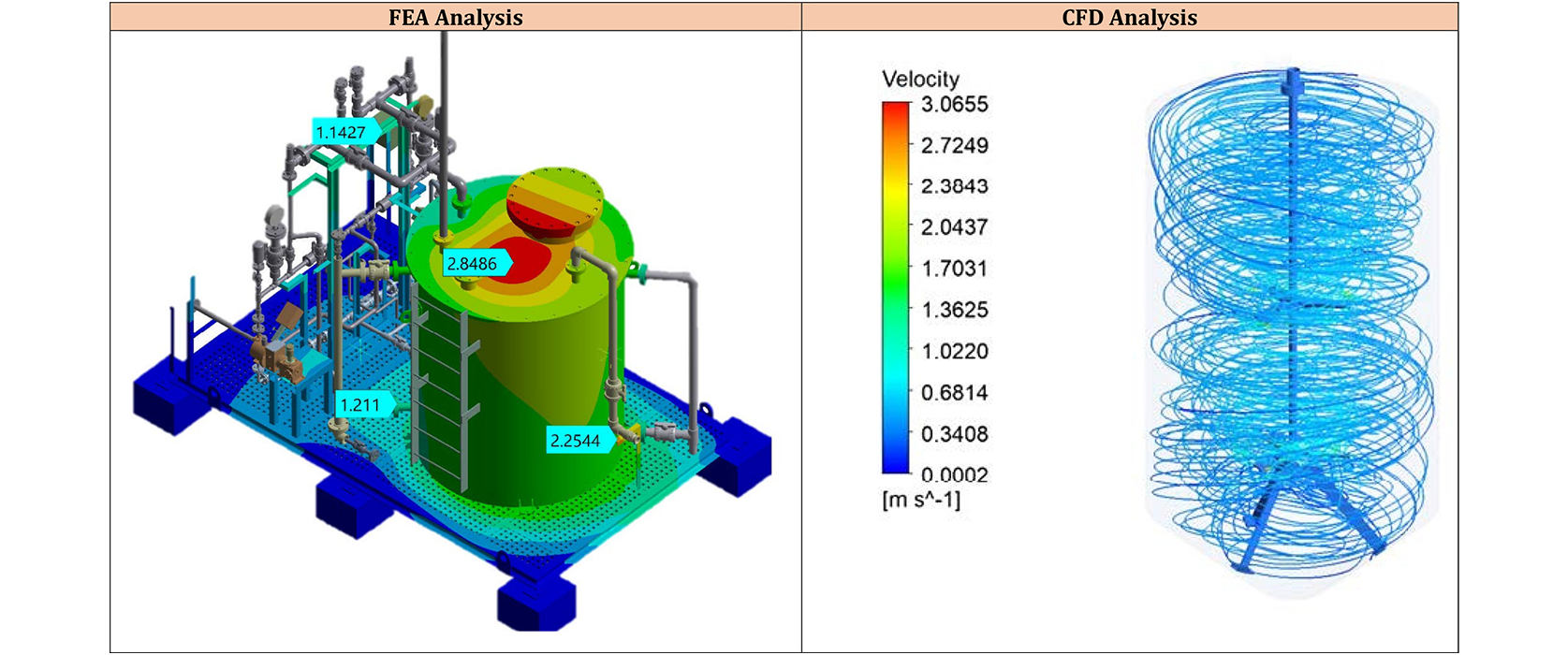
Get Your Free Quote…!


Purpose: The primary purpose of an antiscalant dosing system is to provide a controlled and regulated means of introducing antiscalant chemicals into a water treatment process, helping to prevent scale formation and maintain the efficiency of industrial equipment.
Overview: An antiscalant dosing system is designed for the controlled injection or dosing of antiscalant chemicals into industrial processes, particularly in water treatment applications. Antiscalants are chemical compounds that help prevent the formation and precipitation of scale in systems where water is used. Scale is formed when minerals in water, such as calcium and magnesium salts, precipitate and accumulate on surfaces, leading to the formation of deposits that can negatively impact the efficiency of industrial equipment.



At Verito Engineering Private Limited, we specialize in providing comprehensive engineering analysis and calculations for Skid-Mounted Chemical Injection Packages, ensuring superior performance, reliability, and compliance with global industry standards.
Our expertise covers Finite Element Analysis (FEA), Computational Fluid Dynamics (CFD), Structural, Mechanical, Hydraulic, and Thermal Calculations for all critical skid components, including:

| Pressure Vessel Calculations | API 675-Compliant Dosing Pump Selection & Sizing | Agitator & Mixing Calculations (For Chemical Preparation Skids) |
|---|---|---|
|
|
|
| Automation & Instrumentation for Optimized Operations | Piping Stress & Pressure Calculations | Structural & Skid Frame Analysis |
|
|
|
| Strainer Calculations | Safety & PSV Sizing Calculations | Injection Quill |
|
|
|
| Material Selection & Corrosion Analysis | Operational Efficiency & Cost Reduction | |
|
|
Key components and features of an antiscalant dosing system typically include:
Storage Tank: The system includes a tank where the antiscalant chemical solution is stored. The tank's capacity and concentration depend on the specific requirements of the water treatment process.
Agitator: : A agitator is used to prepare the solution prior to dosing the antiscalant solution.
Dosing Pump: A dosing pump is used to accurately inject or dose the required amount of antiscalant into the water or process stream. The dosing pump ensures precision and control in the dosage, helping to prevent scale formation effectively.
Control System: A control unit manages the dosing rate based on various parameters, such as water quality, flow rate, or specific process conditions. This control system helps maintain the desired level of antiscalant in the water treatment process.
Monitoring and Analysis: Some antiscalant dosing systems incorporate monitoring and analysis tools to continuously assess water quality and adjust the dosing rate accordingly. This helps optimize the dosage and ensure efficient scale inhibition.
Antiscalant dosing systems are commonly used in various industrial applications:
Reverse Osmosis (RO) Systems: Antiscalants are often dosed into RO systems to prevent the formation of scale on the membranes, enhancing the efficiency and lifespan of the membranes.
Boiler Water Treatment: In boilers, antiscalants can be used to prevent the deposition of scale on heat exchange surfaces, improving heat transfer efficiency.
Cooling Water Treatment: Antiscalants are employed in cooling water systems to inhibit scale formation on heat exchangers and cooling tower surfaces.
Desalination Plants: Antiscalants are used in desalination processes to prevent scaling on equipment, ensuring the longevity and efficiency of the desalination system.